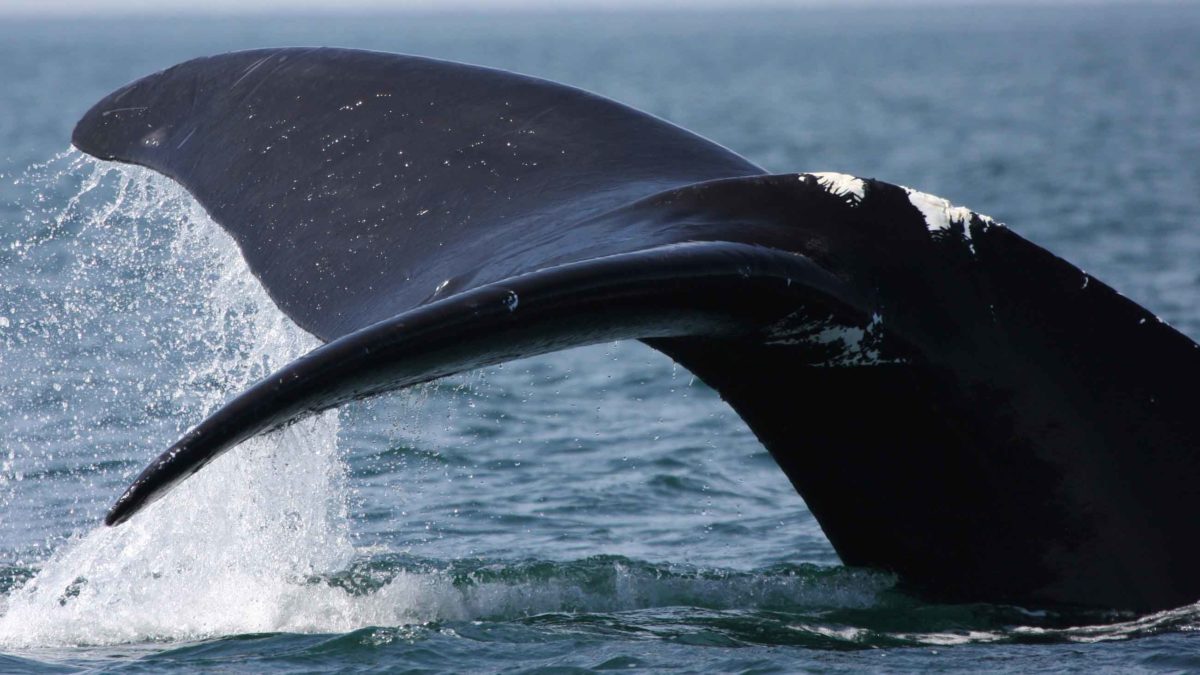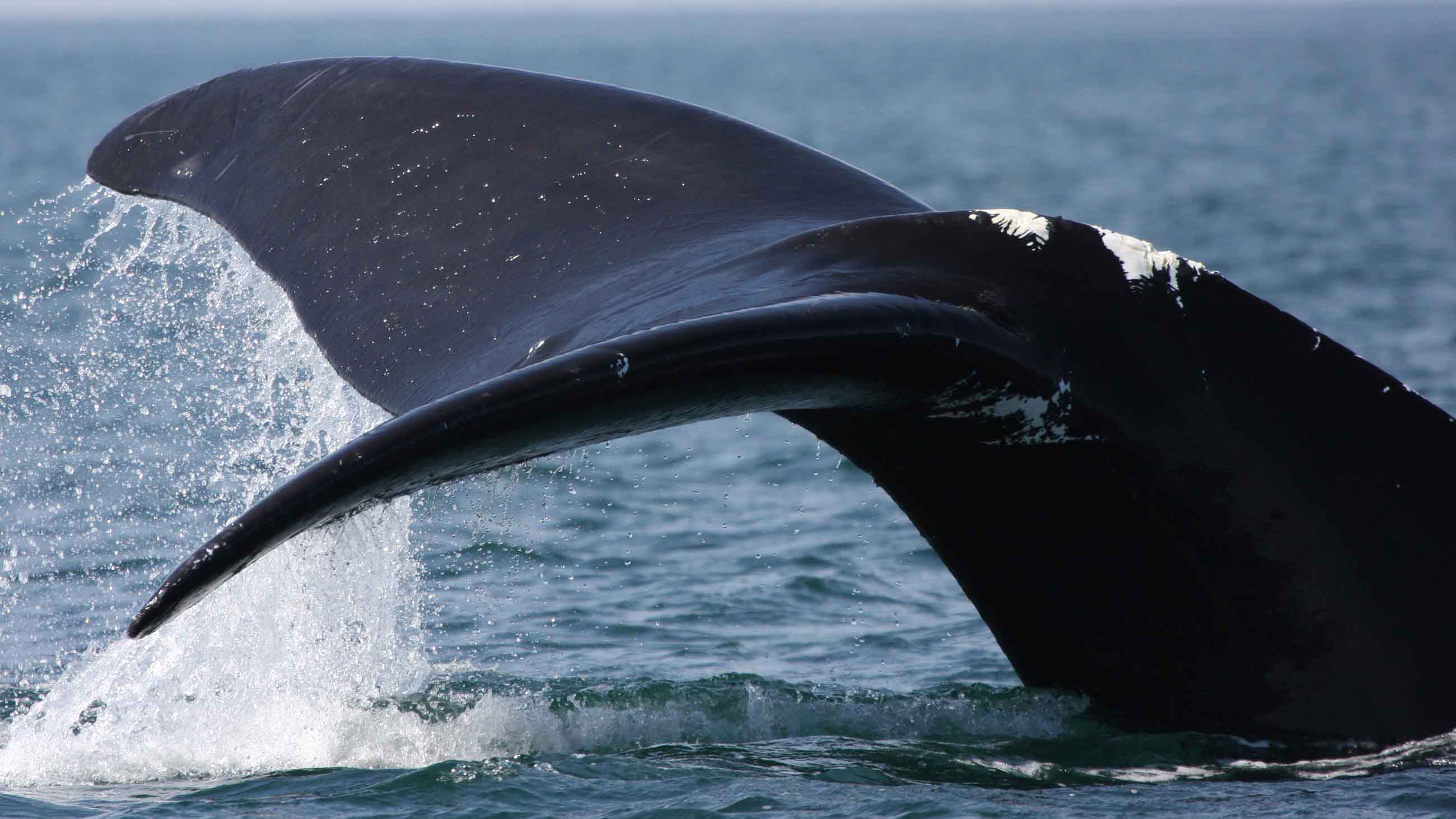Abstracts: Whales, Wolves, and More
• A 36-million-year-old fossil discovered in Peru could provide insights into the lineage of modern whales. (Scientific American)
• Sources say that Trump’s pick for new head of the U.S. Department of Agriculture is Sam Clovis, a conservative talk radio show host who is openly skeptical of climate change. (ProPublica)

A whale fossil unearthed in Peru could yield new insight into the ancestry of modern baleen whales.
Visual: NOAA
• Last month, the only white wolf in Yellowstone National Park suffered a gunshot wound and had to be euthanized. Now the park is offering up to $5,000 for information that leads to the shooter’s arrest and conviction. (New York Times)
• The World Health Organization announced a new Ebola outbreak in the Democratic Republic of Congo on Friday. Fortunately, the DRC is relatively well prepared to handle this crisis. The country has beaten back seven Ebola outbreaks before, and this time health officials have an experimental Ebola vaccine at their disposal. (STAT)
• For centuries, people have believed that because humans have such great eyesight, they must have an unusually poor sense of smell to compensate. But according to a new study in Science, the nose knows more than we often give it credit for. (Vox)
• On Friday, NASA shot down the Trump administration’s request to add astronauts to the agency’s test flight of a new deep-space rocket in 2018. After conducting a feasibility study, NASA has decided to stick with its original plan: conduct an unmanned test launch of the rocket in 2018, followed by a crewed mission in 2021. (Washington Post)
• A Pew research poll revealed the party line split in reactions to the March for Science. While 68 percent of people who lean Democratic supported the march’s goals, only 25 percent of Republican-leaning people said the same. Also, six out of 10 Democrats expected the march to generate support for science, while six out of 10 Republicans expected it to have no impact at all. (Science)
• The CDC reported that the number of hepatitis C cases increased nearly 300 percent between 2010 and 2015. Experts say the opioid epidemic is to blame, adding that drug users need better access to clean needles. (NPR)
• This weekend, computers across the globe were hit with the biggest ransomware attack ever. By Saturday afternoon, the “WannaCry” virus had infected tens of thousands of computers across a hundred different countries, with Europe and Russia bearing the brunt of the malware epidemic. (L.A. Times)
• And finally, although cannabis use in adolescence has been shown to impair learning and memory, a new study suggests that small, regular doses of THC, marijuana’s main psychoactive ingredient, might actually support brain function later in life. (The Guardian)










